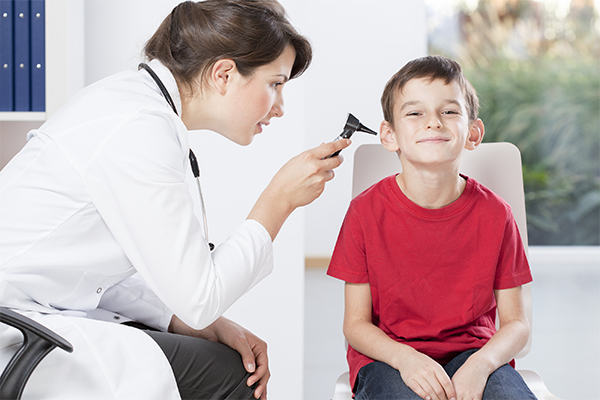Don’t assume kids are too young to be prone to hearing loss. Hearing loss can affect people of any age, including babies. With raised awareness and healthy decisions, you can protect your child’s hearing in the long run.
Aside from professional help, there are several ways you can prevent premature hearing loss in your children at home.
- Educate your child about hearing loss and how to be aware, even on his/her own.
- Encourage your child to cover his/her ears or wear ear protection (earplugs, earmuffs, etc.) in noisy environments.
- Set a maximum volume limit on televisions and audio players.
- Try to muffle or cancel out the sounds coming from chores and household appliances as much as possible.
For young children, discovery is a part of their everyday life. By using their senses they are able to take in a multitude of impressions and learn how to take it all in. If one of these sensory organs becomes damaged it could have adverse effects on their development. Are you worried your child may be experiencing hearing loss? If yes, it is never too early to take your child to get his/her hearing checked by a professional. Thirty-two million people affected by hearing loss are children under the age of 15.
If you observe any of the following behaviors or symptoms of hearing loss, you should consider having your child’s hearing evaluated further by an audiologist:
- Inconsistently responding to sound.
- Delay in language and speech development.
- Unclear speech.
- Volume turned up high on electronic equipment (TV, audio players, etc.).
- Does not follow directions.
- Often says, “Huh?”
- Does not respond when called.
Children are easily prone to noise-induced hearing loss (NIHL). It is good to be aware of common noise threats your child can be exposed. The loudness of sound is measured in units called decibels (dB). NIHL can be caused by prolonged exposure to any loud noise over 85 dB.
- 60 dB—Normal conversations or dishwashers
- 80 dB—Alarm clocks
- 90 dB—Hair dryers, blenders, and lawnmowers
- 100 dB—MP3 players at full volume
- 110 dB—Concerts, car racing, and sporting events
- 120 dB—Jet planes at take off
- 130 dB—Ambulance and fire engine sirens
- 140 dB—Gun shots, fireworks and custom car stereos at full volume
The pediatric ENT specialists at the Children’s Hospital of Georgia’s division of pediatric otolaryngology offer state-of-the-art pediatric ENT care for congenital or acquired conditions of the ear, nose and throat to children patients in Augusta, Georgia. For more information about CHOG, visit our website at augustahealth.org/chog or call 706-721-KIDS (5437).
Sources: National Institute on Deafness and Other Communication Disorders (NIDCD), World Health Organization (WHO), American Speech-Language-Hearing Association (ASHA)




